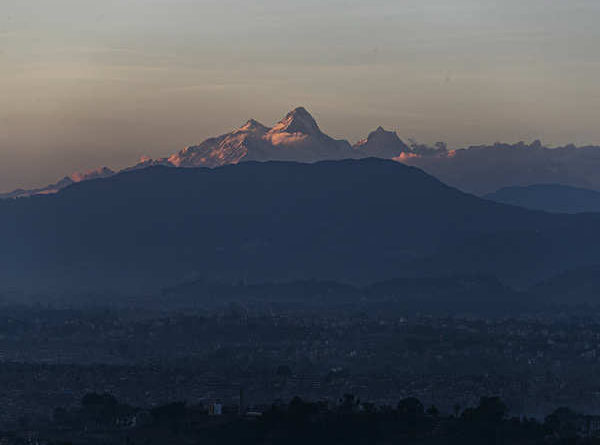China Has Annexed 150 Hectares Of Nepal: Report
Nov 03, 2020
The Telegraph reported that China has pursued a more aggressive foreign policy under President Xi Jinping whose signature Belt and Road projects aim to construct trade and transport links from the country across Asia and into Europe. The land grab in Humla district appears to be motivated by a strategic view.
KATHMANDU: China has annexed 150 hectares of Nepal, alleged the Himalayan nation’s politicians, adding that the annexations of Nepalese land are just the beginning of heightened Chinese aggression along the border.
According to a report by the UKbased Telegraph, Chinese allegedly began seizing Nepali land in five frontier districts in May, sending members of its People’s Liberation Army (PLA) across undefended areas of the border.
In Humla districts, PLA troops crossed the border into the Limi Valley and Hilsa, moving stone pillars which had previously demarcated the boundary further into Nepalese territory before constructing alleged military bases. The Daily Telegraph has seen images of the bases.
PLA soldiers also allegedly moved border pillars further into Nepalese territory in the district of Gorkha.
Further annexations occurred in the Rasuwa, Sindhupalchowk and Sankhuwasabha districts after Chinese engineers in the Tibet Autonomous Region diverted the flow of rivers acting as a natural boundary and claimed the previously submerged Nepalese territory.
“Why should China come over into Nepal, when China is already sixty times the size of our small country?” Telegraph quoted Jivan Bahadur Shahi, a lawmaker in the Nepali Congress Party as saying.
Nepali politicians have accused the government of staying silent for fear of angering their most important trading partner and regional ally.
The Telegraph reported that China has pursued a more aggressive foreign policy under President Xi Jinping whose signature Belt and Road projects aim to construct trade and transport links from the country across Asia and into Europe.
The land grab in Humla district appears to be motivated by the strategic view the district’s mountain peaks offer over the Himalayas, according to Nepalese politicians.
In 2009, Chinese troops first crossed over into the undefended district and constructed a veterinary centre for livestock.
Shahi objected to the construction but was told by the Nepali government the building would have a positive impact on the livelihoods of impoverished local residents who typically make a living by herding yak and goats.
Shahi said around 30 hectares of Nepali territory have been seized in the Limi Valley. Chinese troops constructing an additional nine buildings, including military bases, according to Shahi.
He said China annexed more land in the Humla district in June, in Hilsa, taking the total allegedly seized in these districts to 70 hectares.
“The local people are very scared, particularly because they previously depended on Chinese traders to buy commodities like rice, bread and salt,” explained Shahi.
“They are worried that if they raise their voices on the issue then it will disturb everything for them,” he added.
In the first week of May, China had moved the pillars in the remote mountainous village of Rui awoke incorporating part of it into the Tibet Autonomous Region, according to Rakesh Kumar Mishra, a committee member of the opposition Janta Samajh Party.
Mishra said around 60 hectares of land were annexed.
Mishra and Shahi both accused the Nepalese government of inaction. The Nepalese Surveying and Mapping Department, which claimed China had purposefully altered the course of rivers acting as a natural border with Nepal to claim 33 hectares of land was quickly dismissed by Nepalese government sources.
Nepal is currently ruled by the Nepal Communist Party (NCP), which sees the Communist Party of China (CCP), as an ideological brother, The Telegraph reported.
China also contributes to the majority of vital foreign direct investment into Nepal, which is one of Asia’s poorest nations.
“The people of Nepal need other countries to help them and protect its territory since it is such a small, landlocked country,” said Mishra.
The Chinese side has built buildings at a distance of around two kilometres from border in the Lapcha Limi area of the Humla District. China in recent years has been carrying out construction works near the border with Nepal for several years.
While the Government of Nepal has remained mum over the issue, the Chinese Mission in Nepal has issued a release claiming the building is built in their side and asked Nepali authorities to verify the border points.
“The buildings mentioned in the media have been verified to be on the Chinese side of the China-Nepal border. The Nepali side may make verification again,” a Chinese Embassy spokesperson said on Wednesday.
Courtesy: ET

